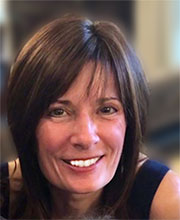 From the time we learn the word “no,” we begin to get the message that what we would do naturally is “bad.”
From the time we learn the word “no,” we begin to get the message that what we would do naturally is “bad.”
As young children, we can’t make a distinction between our behavior and ourselves, so we buy into a lie — the lie that in order to be good enough we have to sit still and be quiet, or look pretty, or SOMETHING. But you know as well as I do that some of the demands we place on children (and ourselves) are more apt to stifle them than make them good.
“Even if you were fortunate enough to grow up in a safe, nurturing environment, you still bear invisible scars from childhood, because from the very moment you were born you were a complex, dependent creature with a never-ending cycle of needs. Freud correctly labeled us ‘insatiable beings.’ And no parents, no matter how devoted, are able to respond perfectly to all of these changing needs,” says Harville Hendrix in his bestselling “Getting the Love You Want.”
We have a fundamental motivation to be accepted, which is why you might jump to defend yourself, your parents, your children (even while reading this). Rejection used to point to a problem that needed our attention, and our survival depended on how sensitive and responsive we were. Yes, we’re programmed to be sensitive to rejection! There was a time in our history when being solitary meant being a meal. We needed the tribe.
Unconscious feelings of inferiority are universal … so, whether we realize it or not, we are driven to prove to ourselves and to the world that we’re worthwhile. My own life reads like a textbook example, and there’s a really good chance that yours does, too.
You might think that your pursuit of money, or sex, or fame, or happiness is just that — a pursuit of money, or sex, or fame, or happiness. But if that were the case, would you still be striving … and moving the bar for what constitutes enough? You can, as you may well know, create a picture-perfect life, and still have the same doubts, the same sense that something’s missing, the same fear that you’re innately lacking whatever it is.
There is not enough success to make us feel the way we want to feel. We can’t get pretty enough, or smart enough, or rich enough when what we’re really trying to do is get good enough. Any fix we find in drugs, or sex, or food, or work is temporary. So, we can hit one dead-end after another trying to fill a hole with something that can’t fill it.
The ultimate fear of not being good enough triggers empty pursuit, escape, and addiction, as well as all negative emotion. If deep down you’re still trying to prove that you’re worthwhile, afraid that it’s not apparent or true, please know that the fear is based on a lie!
Seek not good from without; seek it from within yourselves, or you will never find it,” said Epictetus.
Unfortunately, religion sometimes promotes the notion that we’re tainted or flawed, rather than good. God didn’t make us bad, though; he made us human. He gave us the knowledge of good and evil; he didn’t want robots. And he knew that in order for us to feel good, we would have to be able to choose good.
“God has no religion,” said Ghandi. And I suspect Jesus would have agreed. He said, “For whoever has not known himself knows nothing, but whoever has known himself has simultaneously come to know the depth of all things.”
When you know yourself, what you really know is love. Your innate goodness is love. When you know it, you know the depth of all things.
That’s why in my book “Innately Good: Dispelling the Myth That You’re Not,” I do my very best to help you rediscover your true self, your innately good self.
When you distinguish fear from love as the driving force of your behavior, and choose love, you experience yourself as having all the potential of love.
 Jan's program for the quest of a lifetime.
Jan's program for the quest of a lifetime. Are you ready to live your destiny?
Are you ready to live your destiny?